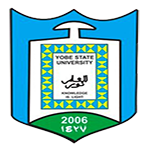Ophthalmic Nursing School at Korle Bu, Courses, Hostel Accommodations and Admission Requirements
Do you want to enroll in Ophthalmic Nursing School at Korle Bu but you don’t know if the course you want to study is being offered by the School? How about understanding the necessary requirements for enrollment in the school? You can use the information in this article to learn everything you need to know about the school.
This article details the school admission requirements, hostel accommodations and list of courses offered
About Ophthalmic Nursing School at Korle Bu

The Ophthalmic Nursing School at Korle Bu Teaching Hospital in Accra, Ghana trains ophthalmic nurses and other eye care professionals.
Established in 1960, the school has trained over 2,500 ophthalmic nurses and allied eye health professionals. It offers a three-year diploma program in Ophthalmic Nursing accredited by the National Accreditation Board.
READ ALSO: Western Hills School of Nursing, Courses, Hostel Accommodations and Admission Requirements
Admission Requirements for the Ophthalmic Nursing Program
Educational Requirements
To be admitted into the Ophthalmic Nursing Program at Korle Bu, you must have completed secondary school education and obtained the West African Senior School Certificate Examination or its equivalent. Applicants should have a strong background in the sciences, especially biology, chemistry, and mathematics. Proficiency in English is also required.
Age Requirement
Applicants must be between 18 to 35 years of age to enroll in the program. Exceptions may be made for those with previous nursing experience.
Physical and Mental Fitness
Due to the demanding nature of the nursing profession, applicants must be in good physical and mental health. A medical examination will be required to determine fitness for the program. Disabilities will be accommodated when possible.
Application Process
Interested applicants must submit an application form with certified copies of educational certificates, a birth certificate, and a medical report. Shortlisted candidates will be invited for an interview with the admissions committee. Successful applicants will receive an admission letter and registration details.
Program Fees
Admission and tuition fees apply. Fees cover tuition, learning materials, uniforms, and clinical practice. Installment payment plans and scholarships are available for those who qualify. No applicant will be denied admission based solely on their inability to pay.
With the proper qualifications and perseverance, you can gain admission into the Ophthalmic Nursing Program at Korle Bu. Dedicated students will find a rewarding career helping patients manage eye conditions and vision impairment.
Courses at the Ophthalmic Nursing School
The Ophthalmic Nursing School Korle Bu offers a variety of courses to equip nurses with the necessary knowledge and skills for a career in ophthalmic nursing.
Certificate Course in Ophthalmic Nursing
This one-year program provides the fundamentals of ophthalmic nursing. It covers anatomy and physiology of the eye, common eye disorders and diseases, ophthalmic pharmacology, and ophthalmic surgical procedures. Students also gain practical experience through clinical placements at the Korle Bu Teaching Hospital eye clinic and theater. Upon completion, students are awarded a Certificate in Ophthalmic Nursing.
Diploma in Ophthalmic Nursing
This two-year diploma program builds upon the certificate course with advanced modules in ophthalmic nursing. It includes coursework in advanced ophthalmic pharmacology, specialized ophthalmic procedures, and management of complex eye disorders. Students undertake internships at major eye care facilities to gain supervised clinical experience. Graduates are awarded a Diploma in Ophthalmic Nursing and are qualified to work as ophthalmic nurses.
Bachelor of Science in Ophthalmic Nursing
This four-year degree program provides comprehensive training in ophthalmic nursing. In addition to advanced courses in ophthalmology and ophthalmic nursing practice, students complete general education requirements and elective courses. The program includes research modules to equip students with skills to contribute to evidence-based practice. Extensive clinical placements and a final-year internship prepare students to practice as professional ophthalmic nurses. Graduates are awarded a Bachelor of Science in Ophthalmic Nursing.
The Ophthalmic Nursing School Korle Bu strives to produce highly skilled ophthalmic nurses to deliver quality eye care services in Ghana. The nursing programs are accredited by the National Accreditation Board of Ghana and recognized internationally. Graduates have opportunities to pursue master’s and doctoral degrees in nursing to advance their careers.
Hostel Accommodation
Accommodation Availability
The Ophthalmic Nursing School Korle Bu offers single and shared accommodation for students in an on-campus hostel. Priority for accommodation is given to full-time students, especially those in their first and second years of study. The hostel has limited spaces, so students are advised to apply for accommodation at the earliest opportunity to avoid disappointment.
Room Options
The hostel provides single, twin, and multi-occupancy rooms. Single and twin rooms contain a bed, desk, chair, and storage space for each student. Multi-occupancy rooms house 3-4 students and also provide basic furnishings for each student. All rooms have access to shared bathroom and kitchen facilities.
Facilities
The hostel aims to provide students with a comfortable living environment conducive to study. In addition to bedrooms and bathrooms, the hostel offers:
- A spacious lounge area for relaxation and group study.
- A well-equipped kitchen where students can prepare their own meals.
- On-site laundry facilities.
- 24-hour security and emergency assistance.
- Wi-Fi internet access.
Cost
Accommodation fees are charged per semester and are payable upon acceptance of a place in the hostel. Fees cover the provision of a furnished room as well as access to all hostel facilities. Students are responsible for utility bills and any damages. The hostel aims to keep fees affordable for students on a budget. Scholarships and bursaries are available for students in financial need.
In summary, the Ophthalmic Nursing School Korle Bu hostel provides comfortable and affordable accommodation for students in a safe, regulated environment. Priority is given to full-time students, especially in their first years of study. Students wishing to live in the hostel should apply as early as possible through the School’s Accommodation Office.
FAQs
What is the duration of the nursing course?
The Ophthalmic Nursing Program at Korle Bu Teaching Hospital spans over 18 months. The curriculum includes both theoretical and practical components to equip students with essential knowledge and skills required to practice as ophthalmic nurses.
What are the entry requirements?
To qualify for admission into the Ophthalmic Nursing Program, applicants must:
- Have a diploma in General Nursing from an accredited nursing institution.
- Be registered with the Nursing and Midwifery Council of Ghana.
- Have at least two years of work experience as a general nurse.
- Pass an entrance exam and interview.
- Be between 25 to 45 years of age.
What topics are covered in the curriculum?
The curriculum covers a wide range of ophthalmic nursing topics including:
- Anatomy and physiology of the eye.
- Common eye diseases and disorders such as glaucoma, cataracts, diabetic retinopathy, etc.
- Diagnostic tests like tonometry, visual acuity testing, slit lamp examination, fundoscopy, etc.
- Treatment procedures such as lens extraction, laser treatment, administration of eye medications, etc.
- Patient care, counseling and health education.
- Research methodology and biostatistics.
What job opportunities exist for ophthalmic nurses?
Graduates of the Ophthalmic Nursing Program can work as:
- Ophthalmic nurses in eye clinics, eye hospitals and general hospitals.
- Public health ophthalmic nurses.
- Ophthalmic nurse educators and ophthalmic clinical instructors.
- Vision screeners for schools, companies and communities.
- Ophthalmic nurse researchers.
- Ophthalmic clinical auditors and ophthalmic quality assurance nurses.
How much do ophthalmic nurses earn?
Ophthalmic nurses in Ghana earn between GHS 1,500 to GHS 3,500 per month depending on experience, additional qualifications and place of work. Ophthalmic nurses working in private health facilities and eye hospitals typically earn higher than those in public hospitals. Salaries are often higher in urban areas compared to rural facilities.
READ ALSO: FUHSA School Fees, Admission Requirements, Hostel Accommodation And List Of Courses Offered








